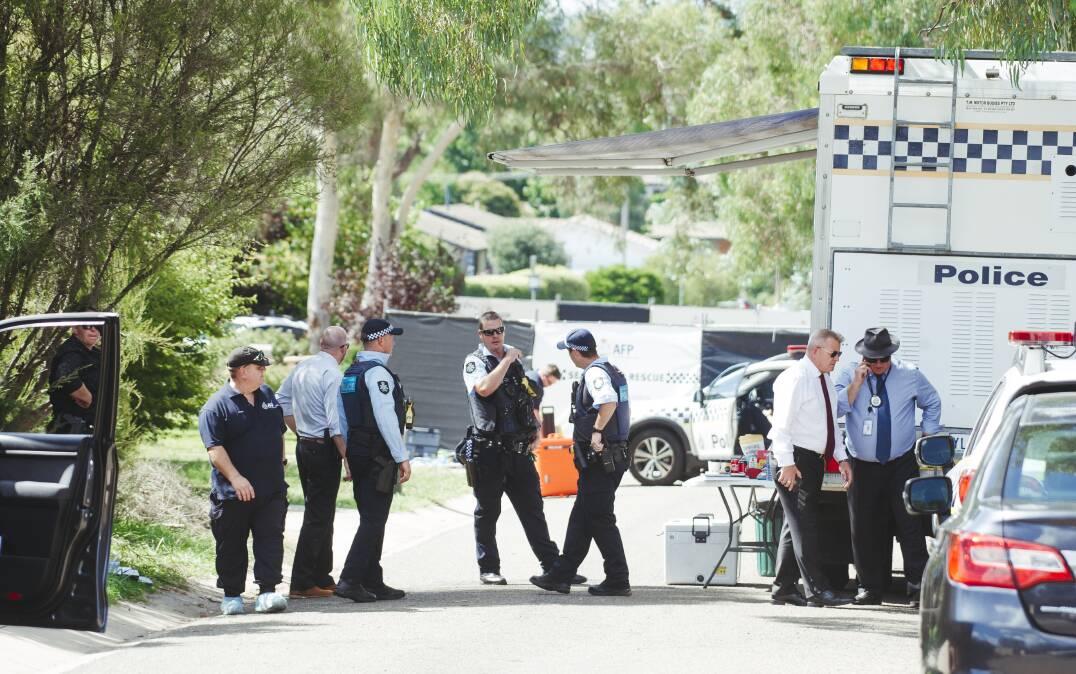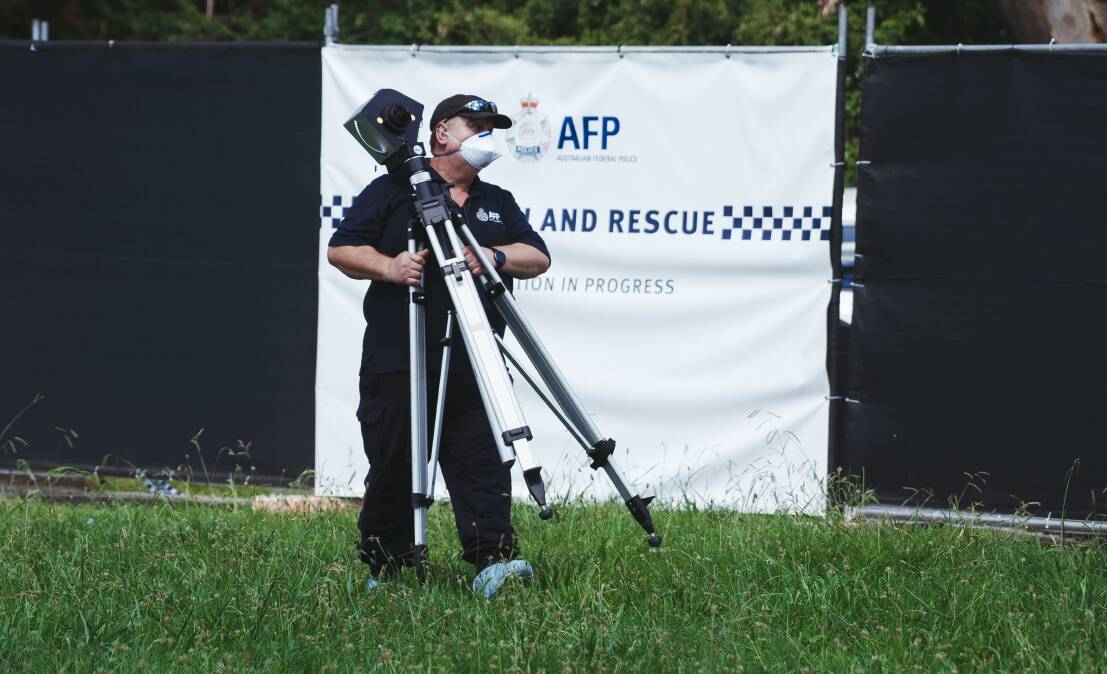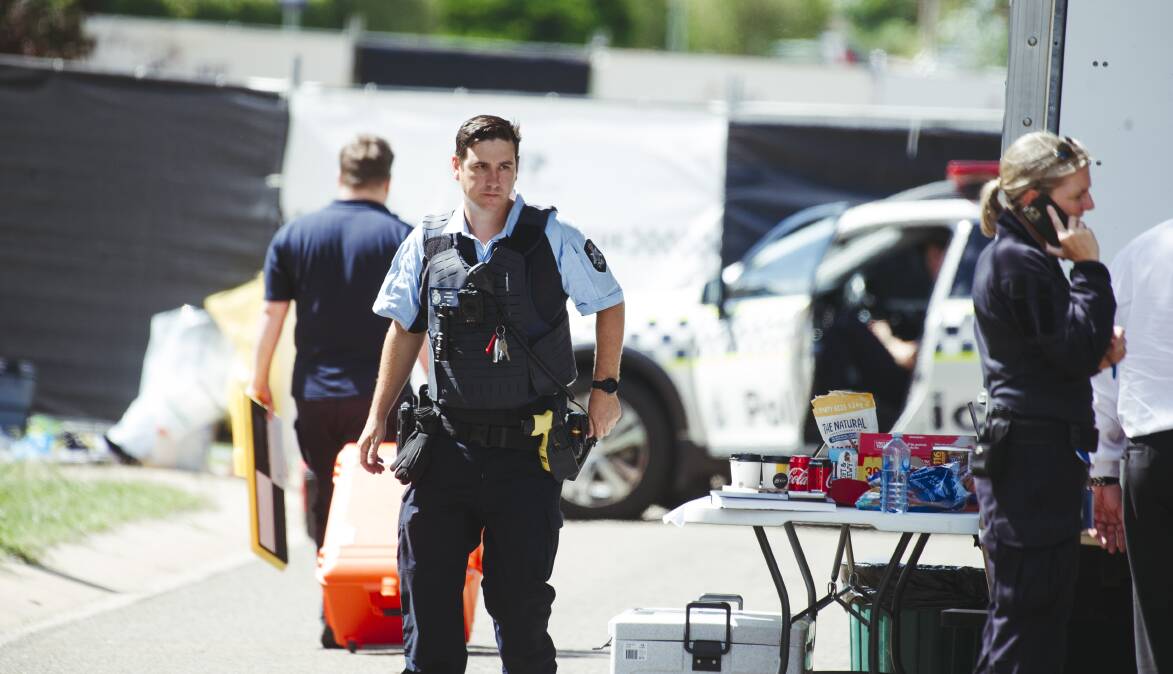
A Page man has admitted nearly severing a housemate's spinal cord during a fatal attack one of his surviving victims has likened to a horror movie.
Wajid Kakar, 37, killed housemate Michael Allen Clement Williams, 34, by using a sharp object, which was most likely a meat cleaver, to inflict multiple "chop" wounds during an unprovoked assault at their home.
"The injuries inflicted by [Kakar] caused fractures to Mr Williams' skull and spine, and nearly severed his spinal cord," an agreed statement of facts, tendered to the ACT Supreme Court on Wednesday, reads.
"Mr Williams suffered extensive blood loss. Mr Williams died as a result of his injuries."
After killing Mr Williams in what prosecutor Anthony Williamson SC branded an act of "extreme and gratuitous violence", Kakar turned on another housemate, Simon Phillip Tyler, and guest Asha Bixenta Miller.
The killer barged into Mr Tyler's bedroom while he and Ms Miller were asleep about 8.45am on February 20, 2021.

"[Kakar] was carrying a large butcher's knife and a meat cleaver," the agreed facts state.
"[He] said 'I'm going to kill you' or 'I'm going to slash you' to Mr Tyler.
"[Kakar] then started attacking Mr Tyler and Ms Miller, stabbing and chopping at them with the knife and meat cleaver."
Mr Tyler, who was 28 at the time, ultimately suffered 44 major lacerations and acute blood loss, leaving doctors who assessed him upon his subsequent hospital admission with the expectation he would die.
The facts say he begged for his life during the attack, telling Kakar "please, no", as blows rained down.
"Mr Tyler described the attack as like being in a horror movie," the document says.

At some stage, while Kakar was focusing his attack on Ms Miller, Mr Tyler ran from the house in search of help and alerted a neighbour, who contacted police and rendered first aid.
Kakar continued to attack Ms Miller, then aged 20, as emergency services raced to the scene, at one point lodging a blade in her neck in defiance of her pleas for him to stop.
He eventually used the knife to injure himself, but not before leaving Ms Miller with several major lacerations, fractures to her skull and spine, and massive blood loss.
When police arrived, an armed and badly wounded Kakar defied instructions to drop his weapons and instead charged at officers in the driveway of the Braine Street home.
In order to disarm and arrest Kakar, police had to Taser him several times and even use a riot shield.
Paramedics treated Mr Tyler and Ms Miller at the scene and raced them to hospital for urgent surgery, without which the agreed facts say both would almost certainly have died.

Nearly two years later, Kakar, who has been remanded in custody since his arrest, admitted his conduct.
However, he pleaded not guilty to five charges, including murder and two counts of attempted murder, by reason of mental impairment.
Mr Williamson told the court he would consent to special verdicts being entered in accordance with the pleas, citing reports from forensic psychiatrists Dr Richard Furst and Professor David Greenberg.
The prosecutor said the experts' evidence, which all pointed "in the one direction", was that Kakar had been suffering from schizophrenia so acute he could not control his conduct or appreciate it was wrong.
Kakar's lawyer, Tamzin Lee, told the court the 37-year-old could not remember the incident, but the agreed facts had been read to him.
"He expresses sadness, regret and feeling bad for the people involved," Ms Lee said on Wednesday.
"He says that it is wrong to take a life, and that he is sorry he has done so."
Ms Lee also told the court of her client's background, saying Kakar was an asylum seeker born in Afghanistan.
She said he had subsequently lived in Pakistan and had eventually undertaken a "perilous" journey to Australia by boat, with the aim of creating a better life for his family.
Kakar's unlawful arrival in Australia landed him in the immigration detention facility on Christmas Island.
Ms Lee said he was eventually granted a bridging visa, only to wind up back in detention facilities all over the country when it was revoked.
She told the court Kakar spent four more years in detention, during which time he became depressed, before being released into the community in 2017.
Kakar eventually moved to Canberra in late 2020, when he started living in the Page sharehouse with Mr Williams, Mr Tyler and a fourth man who was not home at the time of the attack.
Kakar was a heavy cannabis user, who smoked the drug on a nightly basis while on the phone to family members based overseas.
Described as someone with a tendency to be aggressive and confrontational around the house, he wrongly accused the other tenants of stealing his wallet in early February 2021.
Unemployed at the time, he barely interacted with the other occupants of the home for two days before the killing. The facts say he instead annoyed them by playing loud music and voice recordings.
In light of Kakar's pleas on Wednesday, Justice Belinda Baker must consider whether the court is prepared to enter special verdicts of not guilty by reason of mental impairment.
If the judge determines to do so, she will be required to nominate the sentence she would have imposed on Kakar had he not been acquitted.
The indicative sentence will then effectively become the maximum period of time Kakar can be kept in custody for mental health treatment.







